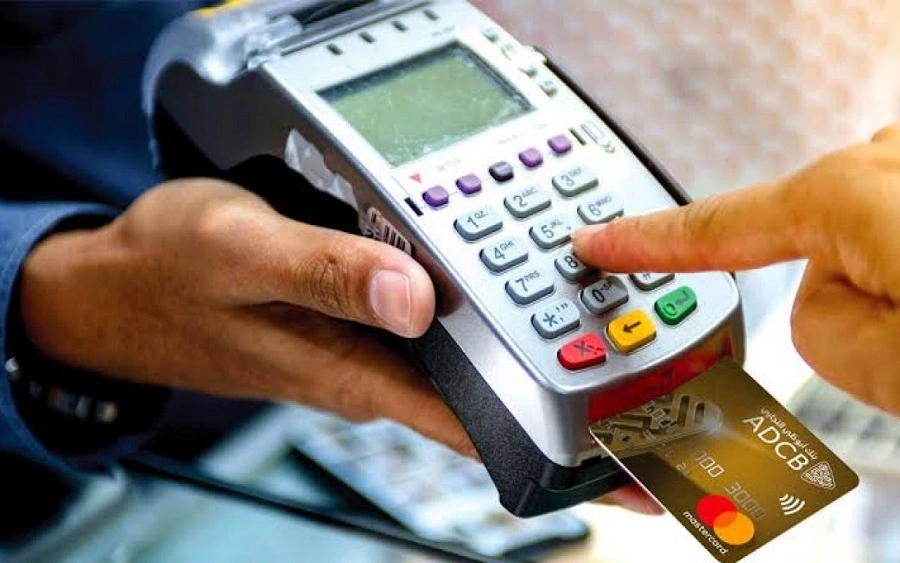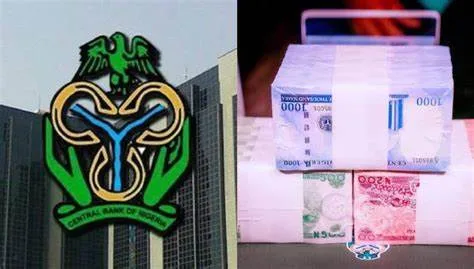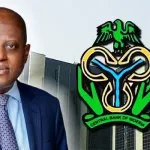The Central Bank of Nigeria (CBN), bank managers, and point of sale (POS) operators have continued to banter blame as the cash crunch continues to grow.
With what happened in Nigeria during the naira redesign exercise of late 2022, before the general election, one would not imagine that another cash scarcity would happen considering the rate of poor network providers in Nigeria.
Join our WhatsApp ChannelAs the blame continues, the citizens continue to suffer. Yes, Nigerians understand that the Federal Government is increasingly transitioning to a cashless economy, which some say may hamper ransom collection from kidnappers. Yet, one wonders how serious the government is, not with Nigeria’s sick state of internet traffic.
Currently, there is a general scarcity of cash, and this is felt more in the southern parts of the country. CBN’s Money and Credit Statistics show that currency outside banks surged by 66.2% in September 2024, reaching ₦4.02 trillion compared to ₦2.42 trillion in September 2023. Yet in November 2024, several states in Nigeria faced significant cash scarcity, impacting daily life and economic activities. Notable victim states here include Plateau, which began experiencing severe cash shortages around November 11, 2024.
Residents reported difficulties in withdrawing money, with point-of-sale agents struggling to access funds from banks and withdrawal charges skyrocketing. Kano and Kaduna also reported similar issues, with residents expressing frustration over limited cash availability. The ongoing scarcity has led to disruptions in trade and commerce, as many vendors rely on cash transactions for their day-to-day operations.

Since November 2024, Enugu State has also been grappling with a severe cash shortage, significantly impacting residents’ ability to access money. According to a report by FIJ, banks in Enugu have imposed strict withdrawal limits, allowing only ₦10,000 per transaction. Residents reported that ATMs are largely empty, and Point of Sale (PoS) operators have increased their charges, with fees rising to ₦400 for every ₦10,000 withdrawn. Many individuals are now reliant on PoS transactions, but even those operators struggle to maintain cash availability, though there are reports of many others who are lush with cash.
Can one now say that the issue in the Southeast is a result of the generally bad attitude of Southeast businesses in creating artificial scarcity to hike prices as happens with most consumer goods? Though research indicates that the Igbo culture places a high value on financial success and community support, fostering competition among businesses. This competitive nature can lead to price increases, particularly during high-demand periods, as businesses seek to maximise profits. However, this behaviour is not unique to the Igbos; it reflects broader market dynamics where supply and demand dictate pricing.
Are Banks Complicit in Cash Scarcity?
Media reports indicate that banks may be hoarding cash and failing to adequately supply it to customers thereby exacerbating the situation for personal gain. With approximately 93.1% of currency in circulation held outside banks, a notable increase from 87.5% the previous year. Nigeria’s central bank has noted its plans to release an additional ₦1.4 trillion into circulation to alleviate the situation while also threatening sanctions against banks accused of hoarding cash or failing to dispense it adequately.
READ ALSO: PoS Transactions Hit N13.67tn In Three Years- Report
On the other hand, banks have stated that cash rationing during the end-of-year period is typical due to reduced cash supply from the CBN. A staff member from GTB, who requested not to be named, said: “From my nine years of experience in the industry, the CBN significantly reduces cash supply during this time.” While some other bank managers indicated that the current scarcity is exacerbated by individuals hoarding cash and a decline in deposits.
Meanwhile, the ongoing cash scarcity in Nigeria has raised questions about the actual reasons behind empty ATMs and banks limiting withdrawals to as low as ₦5,000. Despite claims from banks that they are not hoarding cash, the reality suggests otherwise because even ATMs, which are usually open 24/7 hours, have consistently remained empty.
What do PoS Operators Say About Cash Scarcity in Nigeria?
In an interview with some POS agents on Monday, they refuted allegations that they work closely with bank attendants to get money and sell it to customers. According to Mr Nwachukwu, owner of Chidex Enterprise, a POS agent at Odenigwe Nsukka, a University community in Southeast Nigeria, the only amount banks give randomly, whether to POS agents or ordinary customers is ₦5,000 which cannot be used for any POS business. Nwachukwu said that POS agents usually travel to remote villages and get money from business owners in those settings where business find it hard to access banks because of their location.
He further explained that at the end of each transaction, he usually calculates his transport fare considering fuel prices in the country before deciding how much to dispense along with POS charges. “In a bulk room, the highest you can get is ₦5,000; so after meeting a business owner I personally usually charge ₦5,000 for ₦200 and ₦10, 000 for ₦400,” said the owner of Chidex.
He claimed that by just entering the bank anyone will know that there is no cash available there; meanwhile, he urged banks to complain about the situation to CBN instead of waiting for customers to deposit money; otherwise, there would be no need for banks at all.
Similarly, Abonyi Peace, another PoS agent in Nsukka, notes that she usually gets her cash from the Ogige market. According to her, “Business owners have complained that there is no need to go to the bank since they face disappointment each time they return to withdraw cash from their deposits. “Those businesswomen also noted that most people do transfers so there is a lack of cash; sometimes when you meet them they will tell you they will call you when they get cash.” Abonyi also noted that some businessmen said they did not like how banks treated them; so to avoid insult, it is better not to visit them at all.
She pleaded with CBN to take action because “this whole issue is affecting POS agents.” Peace, most times, would have to stay idle at home if businessmen did not give her anything for that day.”
Call On CBN To Act If The Apex Bank Has No Hands In Cash Scarcity
Critics of the CBN and commercial banks have raised significant concerns regarding the ongoing cash scarcity crisis. Analysts like Aliyu Ilias have pointed out that CBN has been withdrawing money from circulation without adequately replacing it, particularly highlighting the scarcity of lower denomination notes like ₦100.
Ilias stated: “There should be much more availability of the ₦100 note by CBN,” emphasising that a lack of these notes is detrimental to everyday transactions.
Paul Alaje, Chief Economist at SPM Professionals, attributed the cash scarcity to inflationary pressures, noting: “We don’t hold money because we want to hold it; we hold it because we want it as a medium of exchange.” He criticised CBN’s failure to stabilise currency which has led to widespread suffering among the population.
Many Nigerians have expressed frustration over commercial banks allegedly hoarding cash while blaming CBN for insufficient supplies. A banker commented: “It is CBN that is responsible for this cash scarcity… They are just causing unnecessary suffering for the masses.” This blame game has left millions struggling to access their funds prompting calls for urgent action from CBN.
Meanwhile, CBN Governor, Olayemi Cardoso, during a press briefing at the end of the 297th Monetary Policy Committee (MPC) meeting in Abuja on Tuesday, September 24 emphasised that all deposit money banks must ensure there is always enough cash available for withdrawals. Cardoso reiterated that CBN’s monitoring and spot-checking system will keep track of banks’ compliance and those failing to meet requirements would be sanctioned.
If the CBN is not hoarding money it must take several critical actions to effectively address the ongoing cash scarcity crisis. First and foremost, CBN should expedite plans to release an additional ₦1.4 trillion into circulation over the next few months improving cash flow within the banking system; this measure will help ensure sufficient availability of ATMs in banks’ branches directly addressing challenges faced by customers.
The CBN needs to implement robust monitoring systems ensuring compliance among banks regarding availability rhetorics. This includes enforcing penalties on any banks found guilty of hoarding or failing to dispense adequate amounts. Enhancing communication is also essential; transparency can help restore trust among banks’ customers.
Dr Mbamalu, a Jefferson Fellow, is a Publisher and Media Consultant. He can be reached on marcelmbamalu2@gmail.com
Dr. Marcel Mbamalu is a communication scholar, journalist and entrepreneur. He holds a Ph.D in Mass Communication from the University of Nigeria, Nsukka and is the Chief Executive Officer Newstide Publications, the publishers of Prime Business Africa.
A seasoned journalist, he horned his journalism skills at The Guardian Newspaper, rising to the position of News Editor at the flagship of the Nigerian press. He has garnered multidisciplinary experience in marketing communication, public relations and media research, helping clients to deliver bespoke campaigns within Nigeria and across Africa.
He has built an expansive network in the media and has served as a media trainer for World Health Organisation (WHO) at various times in Northeast Nigeria. He has attended numerous media trainings, including the Bloomberg Financial Journalism Training and Reuters/AfDB training on Effective Coverage of Infrastructural Development of Africa.
A versatile media expert, he won the Jefferson Fellowship in 2023 as the sole Africa representative on the program. Dr Mbamalu was part of a global media team that covered the 2020 United State’s Presidential election. As Africa's sole representative in the 2023 Jefferson Fellowships, Dr Mbamalu was selected to tour the United States and Asia (Japan and Hong Kong) as part of a 12-man global team of journalists on a travel grant to report on inclusion, income gaps and migration issues between the US and Asia.


















Follow Us